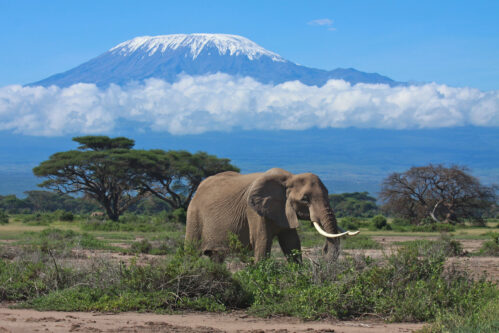
Intro:
Embarking on a journey to climb Mount Kilimanjaro is an exciting and challenging adventure. To make your experience as smooth and enjoyable as possible, it’s important to have the right gear, medications, and food. This comprehensive guide will walk you through all the essentials for conquering the Roof of Africa.
Packing List:
Clothing:
1. Base layers (3-4 sets of moisture-wicking shirts and leggings)
2. Mid-layers (2 fleece or insulated jackets, 1 pair of insulated pants)
3. Outer layers (1 waterproof and breathable shell jacket, 1 pair of waterproof and breathable shell pants)
4. Insulated down or synthetic jacket (for summit attempt)
5. Underwear (4-5 pairs)
6. Socks (4-5 pairs of hiking socks, 2-3 pairs of liner socks)
7. Gloves (1 pair of lightweight gloves, 1 pair of insulated gloves or mittens)
8. Sun hat (wide-brimmed or with neck protection)
9. Beanie/balaclava (for cold nights and summit)
10. Gaiters (for rain and mud protection)
11. Hiking boots (waterproof and broken in)
12. Camp shoes (sandals or lightweight sneakers)
Gear:
1. Backpack (50-70 liters with rain cover)
2. Daypack (20-30 liters for summit day)
3. Trekking poles (collapsible, adjustable)
4. Sleeping bag (rated down to -10°C/14°F)
5. Sleeping bag liner (for added warmth and cleanliness)
6. Sleeping pad (insulated and inflatable)
7. Headlamp (with extra batteries)
8. Sunglasses (100% UV protection)
9. Water bottles or hydration system (3-4 liters total capacity)
10. Water purification tablets or filter
11. Dry bags or plastic bags (to protect gear from rain)
12. Camera/phone and portable charger
13. Travel towel
Toiletries:
1. Toothbrush and toothpaste
2. Biodegradable soap and shampoo
3. Toilet paper and wet wipes
4. Hand sanitizer
5. Sunscreen (SPF 30 or higher)
6. Lip balm (with SPF)
7. Insect repellent (with DEET)
8. Quick-dry towel
Medications:
1. Personal prescription medications
2. Acetazolamide (Diamox) for altitude sickness prevention (consult your doctor)
3. Ibuprofen or other pain reliever
4. Imodium or other anti-diarrheal medication
5. Rehydration salts or electrolyte supplements
6. Antihistamines (for allergies)
7. Blister treatment and band-aids
8. Basic first aid kit
Food:
1. High-energy snacks (nuts, dried fruit, energy bars, etc.)
2. Electrolyte drink mix
3. Hot drink mix (tea, coffee, hot chocolate)
4. Personal food preferences and dietary restrictions (inform your tour operator)
Conclusion:
Proper preparation is key for a successful Kilimanjaro trek. With this guide, you’ll be ready to tackle the challenge with confidence. Remember to consult your doctor before your trip, especially regarding altitude sickness medication and any pre-existing conditions. Enjoy your adventure, and happy climbing